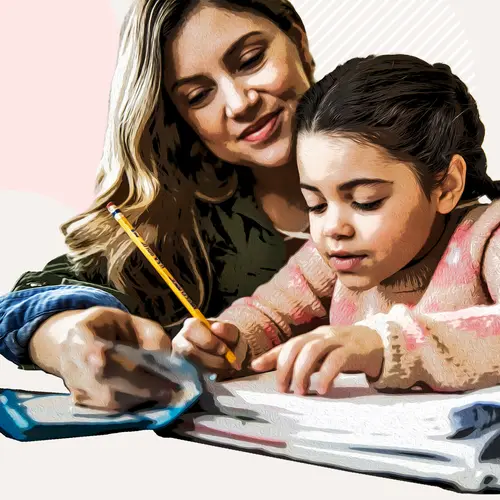When a child or other family member has ADHD, it can shift routines and relationships in ways that affect the whole family, not just the person who has the condition. Helping the person who has ADHD can be a lot to manage, which can be stressful.
Studies show that when one person in the family has ADHD, it can affect how satisfied parents, siblings, and others in the family feel with their everyday life. For example, children with ADHD create far more demands on parents’ time and attention. That can lead to relationship problems, less family togetherness, and more conflict. Research even shows higher rates of divorce and depression among parents of a child with ADHD, compared with other families.
But you can take steps to keep things going as smoothly as possible for everyone. It’s an adjustment, but there are resources that can help.
Managing the Condition
It helps to get your child diagnosed as early as possible. Other conditions can look like ADHD, so make sure you find out if it truly is ADHD.
Part of helping your child with ADHD involves keeping up with your child’s:
Treatment. If your child takes medicine to treat ADHD, you’ll need to watch for any side effects and make sure your child gets the right dose. Keep up with any other treatment that your doctor recommends, too.
School. You’ll also need to work with your child’s school, making sure teachers and counselors are aware of the diagnosis and family needs. Kids with ADHD can be highly intelligent, but they can have trouble focusing and can be hyperactive.
Self-esteem. Praise helps. Tell your child what they are good at and when they have done something positive.
Parenting a Child With ADHD
Parenting is a big job, and ADHD adds to the challenges. So you may want to sign up for training on how to manage your child’s condition and the stress it can bring. You could also join a support group for families with ADHD. Your pediatrician can help you find training, counseling, and support groups in your area.
As a parent, you may also want to try:
Behavior management skills. You use point systems and positive recognition to encourage good behavior. These techniques can help improve targeted behaviors (cleaning a room, finishing homework), but they do not generally improve inattention and hyperactivity.
Therapy. During a dozen or so sessions with a counselor, parents learn how to help their child who has ADHD and then get progress updates at the next session. Therapy can also be for groups of family members. In therapy, you’ll focus on managing daily life more than on treating the ADHD symptoms. Mental health professionals can help you learn to manage a family member’s ADHD and help that person, and the entire family, succeed. The goal is to help each person and the whole family stay strong and resilient, so you can all thrive.
If the person in your family who has ADHD is a teen, remember that they will want to be treated like everyone else and like an adult as much as possible. Make sure they know how to do this, and make it clear that taking medication and attending therapy is their own responsibility.
When conflicts come up, stay honest and positive. Focus on behavior, solutions, and doing what you say you will do. And take good care of yourself so you’re ready to be there for your child.
Siblings
Brothers and sisters often feel the added stress if they have a sibling with ADHD. They might feel guilty because they’re well, or wonder if they did something to cause the other child’s ADHD. They also may:
- Make themselves sick with anxiety, or worry they might get an illness
- Try to take attention for themselves
- Get angry because they have to help out more around the house
- Feel embarrassed when non-family members see them with the full family
They’ll need your help to navigate their relationship with their sibling. For instance, they may not know what’s “normal behavior” for any child and which actions are related to ADHD. Resentment and jealousy also can build when a sibling with ADHD seems to get more attention from parents. Or siblings without ADHD may feel that parents demand more from them because they don’t have the condition. In some cases, you may even ask them to watch over a sibling with ADHD. Try to set realistic expectations about what they need to do.
Keep in mind that they might feel neglected, and don’t pressure them to do more than they’re ready to do. To keep a fair balance:
- Spend time with each of your kids, one-on-one.
- Make sure you have a unique relationship with each child.
- Be open and honest about ADHD with them.
If you see troubling signs -- for instance, if your children who don’t have ADHD seem depressed, lose interest in friends, and act out to get attention -- talk to your children’s pediatrician.
Through it all, try to keep a big-picture view through the daily challenges. Having a child with ADHD may give your whole family the chance to learn positive lessons about empathy, creativity, sharing, and more.

